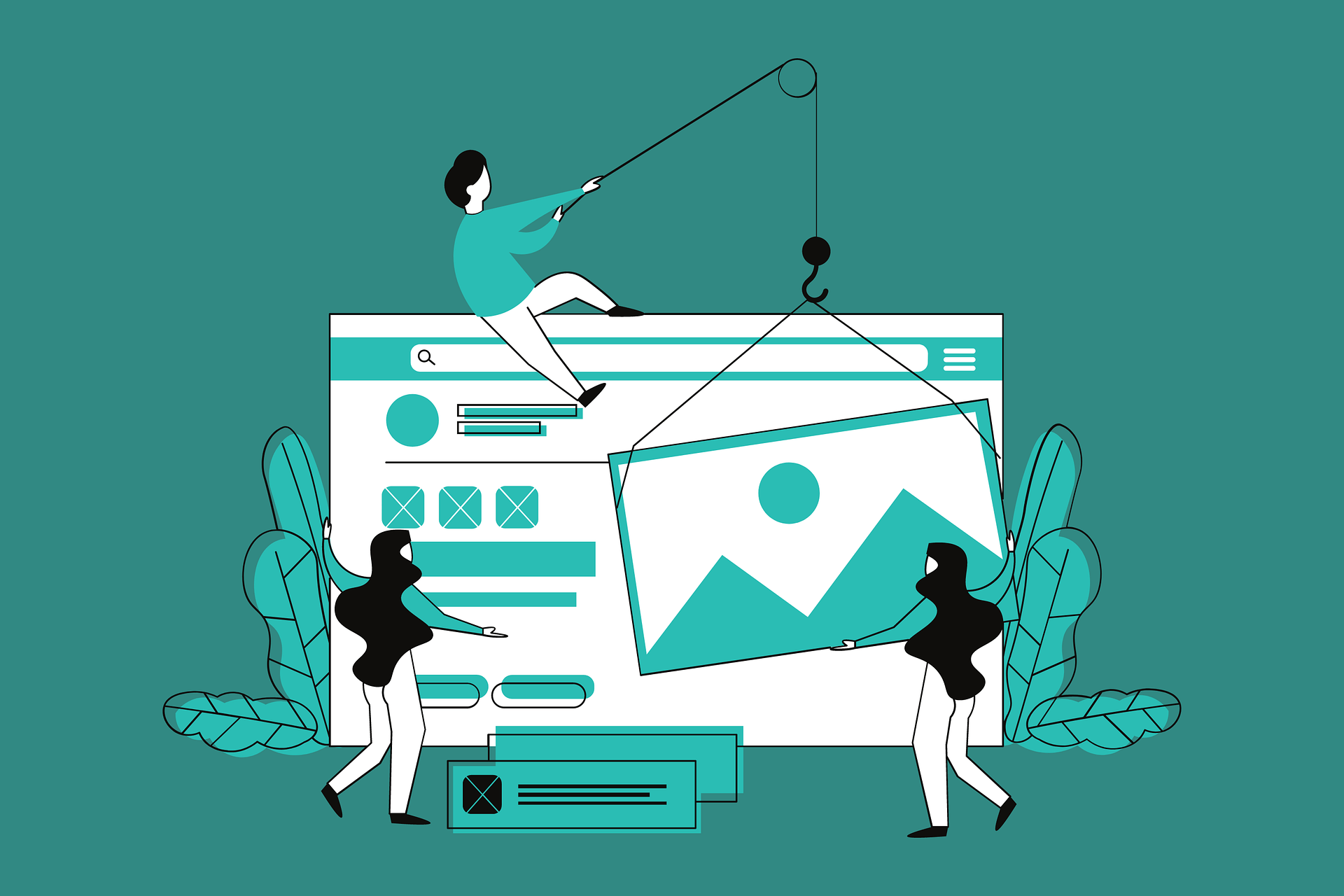The Rise of DIY Website Builders
In the digital age, having a website is essential for businesses of all sizes. DIY website builders have surged in popularity, offering a convenient solution for small businesses, entrepreneurs, and even hobbyists looking to establish an online presence. Platforms like Wix, Squarespace, and WordPress provide user-friendly interfaces that empower individuals to create websites with little to no technical expertise. The allure of DIY builders is strong: they’re cost-effective, easy to use, and promise quick results, making them an attractive option for many.
Pros of DIY Website Builders
Cost-Effectiveness
One of the most significant advantages of DIY website builders is their affordability. For small businesses or startups operating on tight budgets, these platforms offer tiered pricing, often including a free option or low-cost plans that bundle hosting, templates, and support. This makes it easy for anyone to get started without making a substantial financial commitment.
User-Friendly Interfaces
Designed with the average consumer in mind, DIY website builders prioritize ease of use. They typically feature drag-and-drop functionality, intuitive navigation, and a wide array of pre-designed templates. Even individuals with no coding knowledge can create a functioning website by simply selecting and customizing elements like text boxes, images, and buttons.
Quick Setup
A major appeal of DIY builders is the speed at which a basic website can be launched. With ready-made templates and streamlined processes, it’s possible to get a website up and running in a matter of hours. For those who need a quick online presence—whether for a pop-up event, portfolio, or new venture—this rapid setup is invaluable.
Cons of DIY Website Builders
Limited Customization
While DIY website builders offer a variety of templates, these can sometimes feel restrictive. Businesses with unique needs or those looking to stand out may find that the available design and functionality options lack flexibility. Custom features, advanced animations, or complex integrations may be beyond the reach of a DIY platform, which could limit the growth and evolution of the site over time.
Lack of Professional Quality
DIY sites, while functional, often fall short in terms of polish and design quality. Professional designers understand the principles of user experience (UX) and interface design, which may not be replicated in a DIY project. This can lead to websites that look amateurish or fail to provide a smooth, intuitive experience for users—potentially hurting credibility and conversions.
Time-Consuming
Though DIY platforms are marketed as easy to use, they still come with a learning curve. Business owners may find themselves spending considerable time experimenting with design options, fixing technical issues, or understanding how to optimize their site for SEO. This time could otherwise be spent focusing on core business activities, making DIY builders a potentially inefficient option for time-pressed entrepreneurs.
Pros of Hiring a Professional
Tailored Solutions
When you hire a professional, you gain access to custom solutions tailored specifically to your business needs. Unlike cookie-cutter templates, a professional designer can create a unique website that not only looks stunning but also functions seamlessly. From custom features to branding-specific designs, professionals can ensure that your site reflects your vision and meets your business objectives.
Expertise and Experience
Professionals bring valuable industry insights and technical know-how to the table. They understand the latest design trends, SEO best practices, and optimal user experience flows. With this expertise, a professionally built website is more likely to perform well, rank higher in search engine results, and provide a smoother, more enjoyable experience for visitors.
Ongoing Support
One of the key advantages of hiring a professional is the ongoing support they provide. Websites require regular updates, security patches, and maintenance to keep them running smoothly. With a professional on hand, you have a reliable partner who can handle these tasks, troubleshoot any issues, and ensure your website evolves with your business.
Cons of Hiring a Professional
Higher Costs
Hiring a professional comes with a higher price tag. Custom websites often require a substantial upfront investment, and additional costs may arise for ongoing support, updates, or further customizations. For businesses with limited budgets, this can be a significant hurdle, making DIY builders seem like a more viable alternative.
Longer Timeline
Building a custom website from scratch can take time. Professionals may need several weeks or even months to complete the design, development, and testing phases. This extended timeline can be frustrating for businesses looking to launch quickly. DIY builders, by contrast, allow for much faster setup.
Dependency on the Designer
When hiring a professional, you rely on their availability and responsiveness. If communication issues arise or if the relationship doesn’t go smoothly, it can lead to delays, frustrations, and even disputes. Additionally, future changes to the website may require going back to the designer, adding potential ongoing costs and creating dependency.
Finding the Right Fit for Your Business
Both DIY website builders and hiring a professional come with their distinct advantages and challenges. DIY platforms offer a cost-effective, quick solution but often lack the sophistication and customization that a professional can provide. On the other hand, while hiring a professional allows for tailored solutions and expert insights, it comes with higher costs and longer timelines.
Ultimately, the choice depends on your specific business needs, budget, and long-term goals. If you’re looking for a simple, budget-friendly website with a quick turnaround, a DIY builder might be the right choice. However, if your business requires a robust, unique online presence with room for growth, investing in a professional designer may be the best decision. Careful evaluation of these factors will help you make the best choice for your business’s online future.

